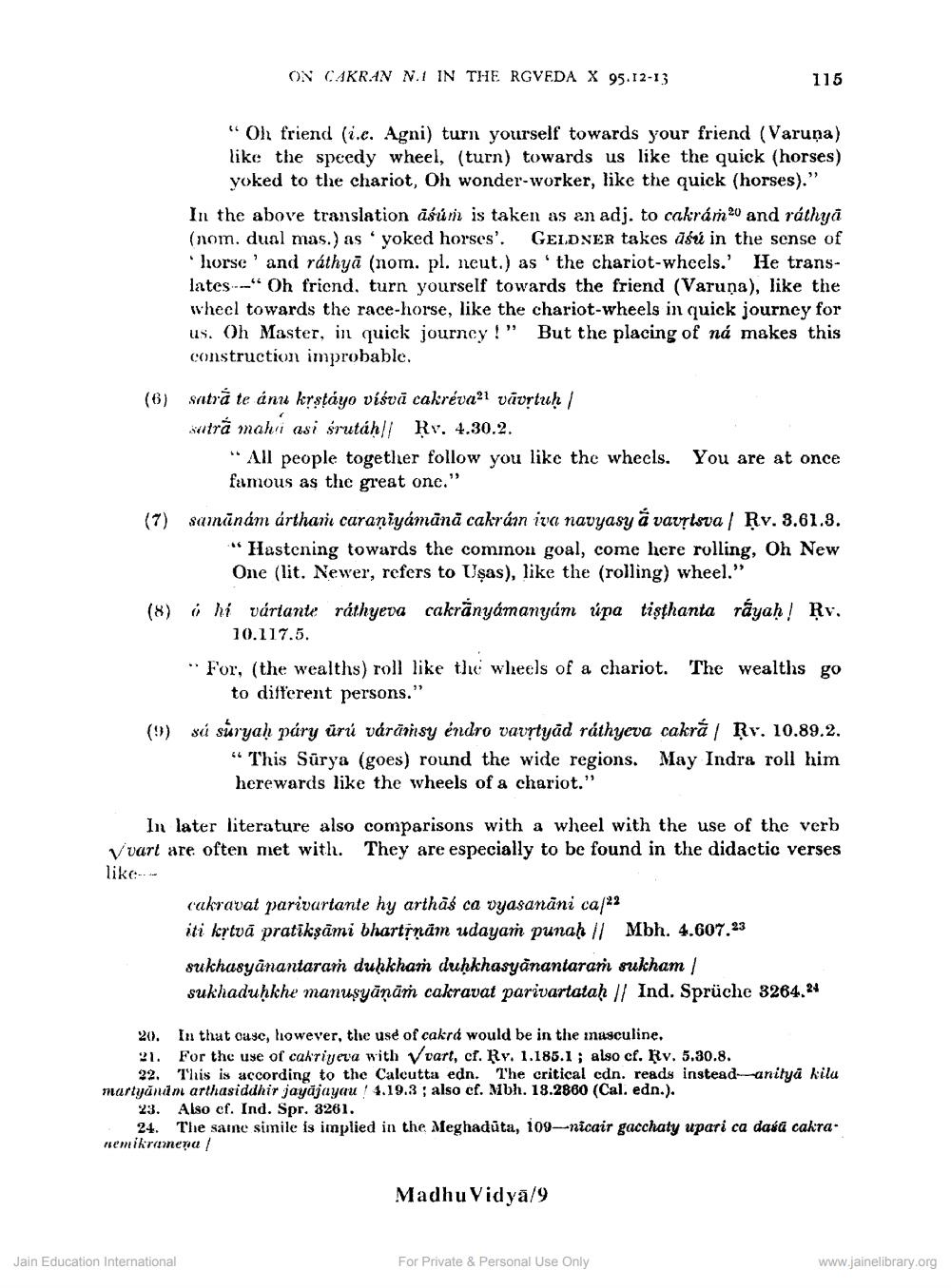________________
ON CAKRAN N.1 IN THE RGVEDA X 95.12-13
"Oh friend (i.e. Agni) turn yourself towards your friend (Varuna) like the speedy wheel, (turn) towards us like the quick (horses) yoked to the chariot, Oh wonder-worker, like the quick (horses)."
(6) satra te dnu kratayo viva cakréva vārtuḥ/
sutra maki asi śrutáḥ Rv. 4.30.2.
In the above translation āśúṁ is taken as an adj. to cakráṁ20 and ráthyā (nom. dual mas.) as yoked horses'. GELDNER takes aśú in the sense of 'horse' and ráthya (nom. pl. neut.) as the chariot-wheels.' He translates Oh friend. turn yourself towards the friend (Varuna), like the wheel towards the race-horse, like the chariot-wheels in quick journey for us. Oh Master, in quick journey!" But the placing of ná makes this construction improbable.
115
"All people together follow you like the wheels. You are at once famous as the great one."
(7) samanám ártham caraniyámānā cakráin iva navyasy a vavṛteva / Rv. 3.61.8. Hastening towards the common goal, come here rolling, Oh New One (lit. Newer, refers to Usas), like the (rolling) wheel."
(8) hi vártante ráthyeva cakrānyámanyám úpa tisthanta rayaḥ Rv.
10.117.5.
Jain Education International
For, (the wealths) roll like the wheels of a chariot. The wealths go to different persons."
()s suryah páry úrú várāmsy éndro vavṛtyad ráthyeva cakrá | Rv. 10.89.2. "This Surya (goes) round the wide regions. May Indra roll him herewards like the wheels of a chariot."
In later literature also comparisons with a wheel with the use of the verb vart are often met with. They are especially to be found in the didactic verses like
cakravat parivartante hy arthas ca vyasanāni ca/2
iti kytva pratikṣāmi bhartṛṇām udayam punah // Mbh. 4.007,
sukhasyanantaraṁ duḥkham duḥkhasyänantaraṁ sukham |
sukhaduḥkhe manuṣyānāṁ cakravat parivartataḥ // Ind. Sprüche 3264,24
20. In that case, however, the use of cakrá would be in the masculine. 21. For the use of cakriyeva with Vvart, cf. Rv. 1.185.1; also cf. Rv. 5.30.8.
22. This is according to the Calcutta edn. The critical edn. reads instead-anityā kila martyanam arthasiddhir jayajayau 4.19.3; also cf. Mbh. 18.2860 (Cal. edn.).
23. Also cf. Ind. Spr. 3261.
24. The same simile is implied in the Meghadūta, 109-nicair gacchaty upari ca daśā cakra nemikramena
Madhu Vidya/9
For Private & Personal Use Only
www.jainelibrary.org




